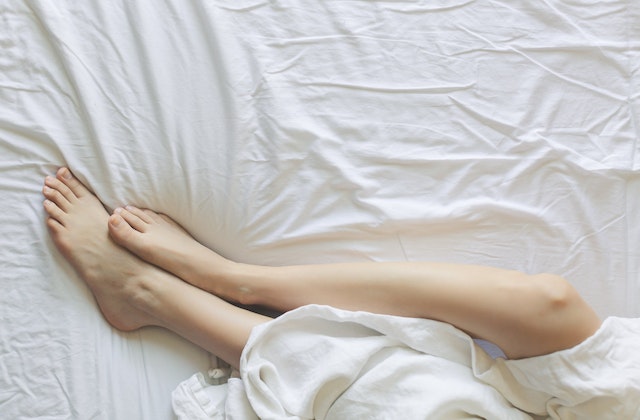Not getting enough quality sleep happens for various reasons.
Once you've determined what's keeping you up at night, most of these reasons can be overcome.
You can adjust your habits to get better sleep. For example, stop clicking the Next Episode button on Netflix or remove the Autoplay.
Don't fall into the "one last chapter" trick.
Here's a guide to better sleep hygiene for a more restful night.
A Guide to Better Sleep Hygiene
1. Have and follow a sleep schedule.
Make your sleep schedule as consistent as possible to get better sleep.
Though most of us like to sleep longer on weekends, try to keep your sleep schedule the same. If you want to sleep longer, go to bed a little earlier.
If you know it's going to be a long day, start your day early.
You know how your day will go and how long it will take you to finish a task. So set a schedule you can keep without having to rush yourself.
2. Watch what you're eating.
Stimulants such as nicotine and caffeine suppress sleep, and it can take hours for their effects to be over.
Opt for caffeine-free drinks such as herbal or citron tea in the evening.
Hot choco contains about 2mg of caffeine too. So avoid it as tempting as it is to drink hot chocolate at night, mainly if caffeine affects you even in small quantities.
Avoid also spicy foods, heavy food like burgers or steak, sweets, and watery foods. They can keep you up or interrupt your sleep because you'll need to go to the bathroom.
Melatonin is a hormone the body produces to regulate sleep-wake cycles.
You can take melatonin supplements at least 30 minutes before bedtime to help your body get into sleep mode.
Here is some melatonin-rich food you can incorporate into your diet:
- pistachios
- goji berries
- banana
- oats
- mushrooms
- corn
- milk
3. Create a set of activities before bedtime
Have a nighttime routine and prepare for sleep.
A routine has been shown to signal the brain that we are heading to sleep.
Spend half an hour before bed winding down, allowing your body to relax.
To help with this, switch off all electronic gadgets one hour before bed.
Stay away from your newsfeed at least an hour before bedtime. The negative impact of social media contributes to a restless night.
- If it helps, set the alarm (with a relaxing tone) to signal that it's time for bed.
- Play calming music or white noise.
- Start to dim the light and adjust the temperature. 60 to 67 degrees Fahrenheit or 15.6 to 19.4 degrees Celsius is best for a comfortable sleep.
- Take a warm shower or a long relaxing bath.
- Write in your journal, especially the things that bother you that might keep you worrying.
If you have the time, practice some nighttime stretches. Stretching can help relieve muscle soreness, slow your breathing, and help release your stress.
4. Create a conducive environment for sleep
Turn your bedroom into a relaxing sleep space.
For kids, dim the lights or darken the room, keep the sleeping room at cool temperatures, and cut down background noises by using white noise.
For adults, the same can also apply!
Choose bedding that has average comfortable temperatures and a comfy pillow.
Remember to power the ceiling fan for a light breeze and turn down the thermostat before retiring.
Use an essential oil spray on your pillow or bedding.
Essential oils that have a calming effect to help you have better sleep are:
- lavender oil
- chamomile oil
- eucalyptus oil
- bergamot oil
- sandalwood oil
- cedar oil
- clary sage oil
- marjoram oil
- valerian oil
- vetiver oil
5. Avoid sleeping during the day
Taking naps is excellent! Naps are energizing and refreshing. But, there are disadvantages.
Naps can keep you up during the night, leading to a perpetual cycle of compensating for poor sleep by taking a nap, which affects night sleep.
Do not nap during the day and sleep better at night. Instead of napping, take a walk.
Engage in physical activity as it promotes better sleep.
Exercises are suited for earlier parts of the day because exercise increases the pulse rate, brain activity, and powers during "fight or flight."
7. Get a new mattress
A good night's sleep cannot happen if you sleep on a hard, uncomfortable, uneven mattress.
If your mattress is over a decade old, consider purchasing a new one.
The Sealy Posturpedic is a well-regarded mattress and one you should consider changing.
Guide to Better Sleep Hygiene Summary
Good quality of sleep can be achieved with a little effort on your part.
Find out which habits keep you from sleeping soundly and work on them.
Minimize your stress levels. Make your bedroom a space well-suited for sleeping.
Write down what is bothering you so that you handle it the following morning while fresh.
Practice the steps in this guide to better sleep hygiene so you get the rest you need and can get ready for a new day feeling refreshed.


























0 comments